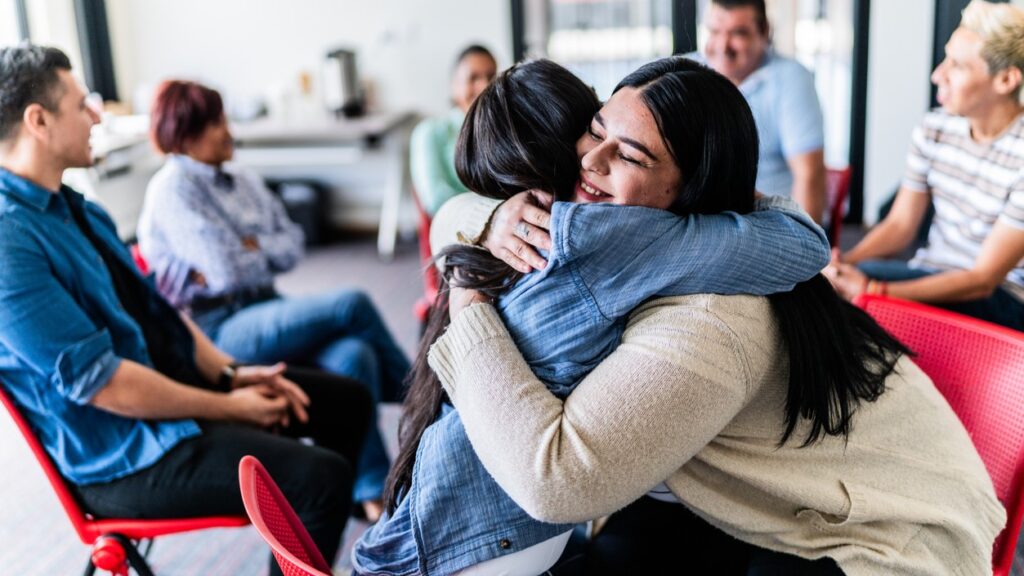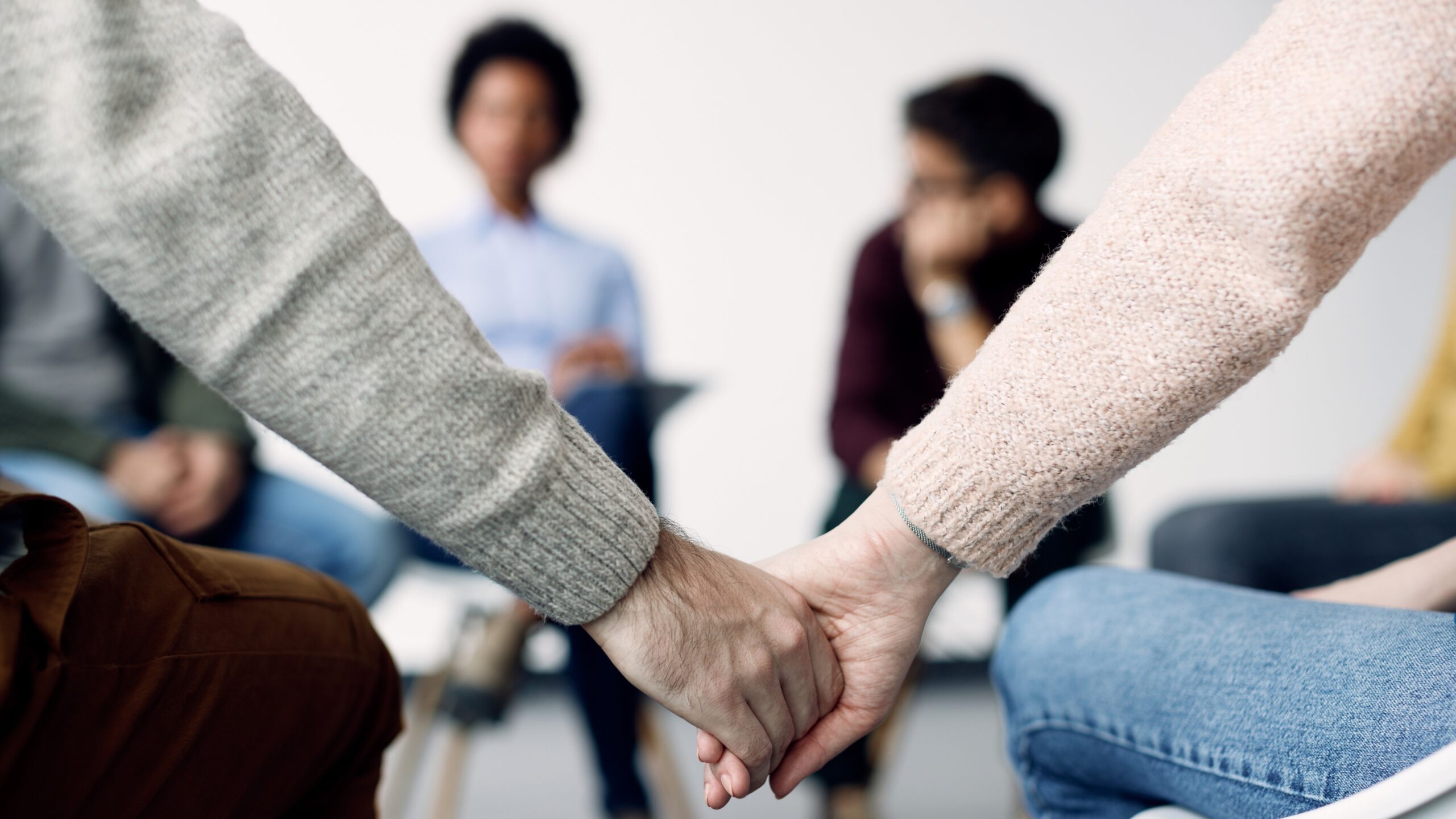Teletherapy has soared in popularity since the COVID-19 pandemic, even extending to sex therapy for couples in group settings.
As an emerging practice, therapists are investigating its effectiveness in treating partners with mismatched sexual desires.
Published in the Journal of Couple & Relationship Therapy, a study compares in-person and online group sex therapy for couples held before and during the pandemic. These findings could help reduce wait times and improve accessibility, especially for those in remote areas.
Optimizing Sexual Experiences group therapy
Sexual desire problems are very common.
Couples often seek therapy for mismatched desire or infrequent sex, as well as the stress these issues cause in their relationships.
To address these challenges, clinical psychologist Peggy J. Kleinplatz, Ph.D. and colleagues developed Optimizing Sexual Experiences (OSE) group therapy. It involves multiple couples and is led by two therapists.
This 16-hour group therapy program runs for 8 weeks with 2-hour weekly sessions. Instead of focusing solely on the partner with lower desire, the therapy works with the couple as a whole. The approach emphasizes fostering erotic intimacy, which enables partners to create sexual experiences they feel are worth wanting.
A key goal is helping partners be fully present and deeply connected with each other. Communication based on empathy, through both words and touch, plays a crucial role.
Trust and vulnerability are nurtured throughout the sessions, with exercises promoting consent, authenticity, pleasure, and playfulness. Couples are encouraged to use conflict to build intimacy with kindness and care.
Comparing virtual and in-person group sex therapy for couples

With the world in lockdown, Dr. Kleinplatz’s team set out to discover whether OSE therapy benefited couples when offered online.
They compared results from 141 couples. Of these, 75 completed in-person sessions before COVID-19 and 66 completed virtual sessions during the pandemic. This included 23 couples from sexual, gender, and relationship minorities. The couples’ sex therapy sessions were held across Canada and the U.S.
Each partner completed the New Sexual Satisfaction Scale (NSSS) at four points: intake, before the first session, after the last session, and 6 months later. The NSSS is a 23-question survey that measures various aspects of sexual satisfaction.
Three extra questions were added to assess overall satisfaction with sex life, communication of sexual desires, and concerns about their partner’s feelings. Participants also provided written feedback on changes in their romantic and sexual relationships after therapy.
The average age of participants was 43.9 years. Of the group, 149 identified as women, 129 as men, and 7 as transgender or non-binary. These couples were in “no-sex” or “low-sex” relationships, having sex fewer than 12 times a year.
Satisfying results across settings

When it comes to group sex therapy for couples, the method matters more than the medium.
Couples reported a significant increase in sexual satisfaction after therapy and at the 6-month follow-up. No major differences were found between the in-person and virtual sex therapy groups. A waitlist control confirmed that sexual satisfaction didn’t improve spontaneously.
Participant scores improved for all 23 NSSS items, with 20 showing statistically significant gains. The biggest increase was in overall satisfaction with sex life. However, there were few significant changes in questions related to orgasm.
Presence, not performance
Breaking down common myths, such as the idea that sex should always be natural and spontaneous, was a critical first step toward a more satisfying sexual connection.
Instead of worthwhile sex being effortless, they found that pleasure and passion could flourish with increasing attention.
In their written responses, participants noted stronger intimacy in daily life, during conflicts, and during sex.
Participants also felt more trusting and open, with less pressure to meet specific expectations.
One participant said:
“When my partner and I have sex, it feels closer, more embodied, and more in the moment. My partner and I seem to be focused less on performing, and more focused on being present.”
The most reported change was a newfound ease in communication, both in and out of the bedroom. Couples felt more comfortable expressing their sexual preferences and exploring new things together.
Group therapy benefits

Despite some initial participant discomfort, the group setting provided a valuable therapeutic environment.
Hearing others share similar experiences made them feel less isolated and more understood. It helped couples realize there’s no “normal” sex life and offered new ideas for improving their relationships.
“Being in the group together helped open up dialogue tremendously about our needs, our fears and also take a lot of guilt out of the process,” shared one participant.
Conversely, a common concern was the amount of “homework” required between sessions, ranging from 1.5 to 3 hours per week. Some participants recommended assessing willingness for these activities before starting therapy.
During COVID-19, a few couples expressed a desire for in-person meetings. Notably, therapists observed stronger group cohesion during sessions held before the pandemic.
The cure for mismatched desire
In reigniting passion, the quality of sexual experiences matters more than quantity.
The study found OSE group sex therapy improved couples’ sexual satisfaction whether it was offered online or in person.
Rather than pathologizing low desire, it helped both partners address and enhance their erotic connection. The group setting also fostered trust and openness, allowing for deep sharing and interpersonal growth.
“This approach enhances sexual fulfillment and enables clients to revision sexuality itself, thereby freeing them to create sex worth wanting and enduring desire,” wrote the authors.
“The cure for low sexual desire is to create desirable sex.”
Photos from iStock



